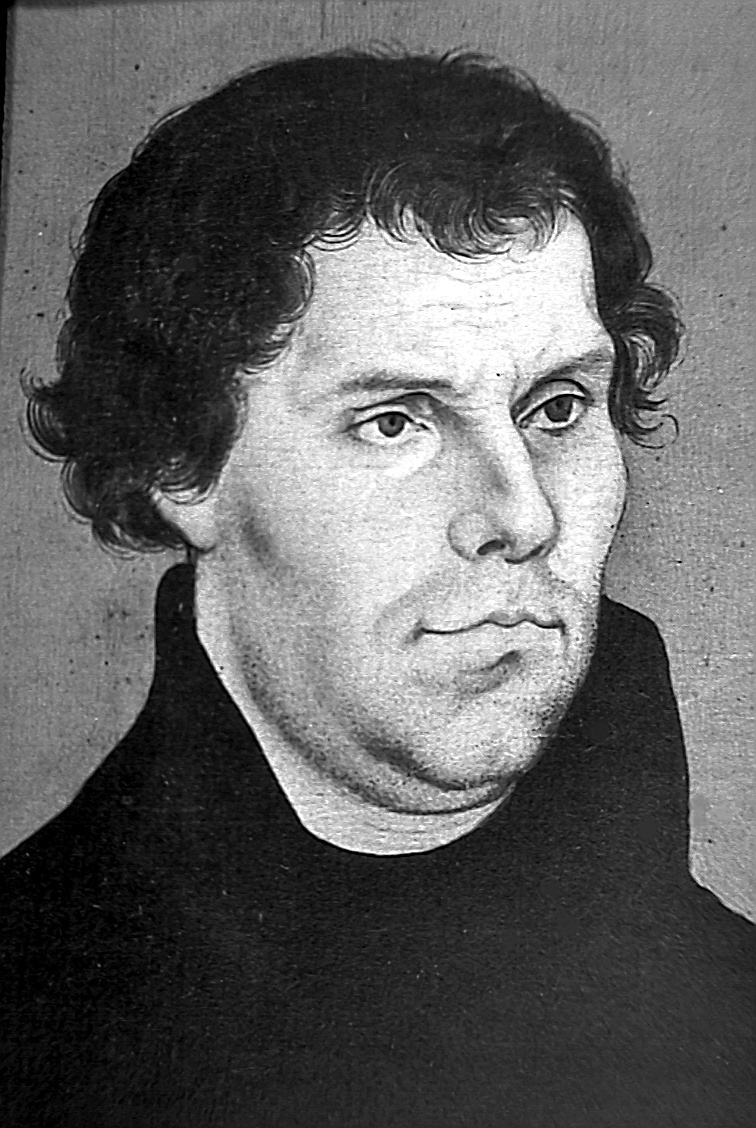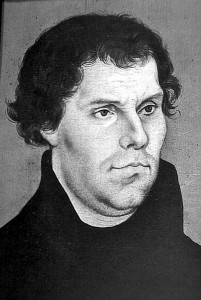Faith Must Trample Under Foot All Reason…
Martin Luther once said “Faith must trample under foot all reason, sense, and understanding.”1 To those who maintain that having faith in God mandates an act of intellectual suicide, Luther’s statement seems ironically appropriate, especially given the fact that the leader of the Reformation seems agreeable to the idea that the less you engage your mind, the better suited you are to be a Christ-follower.
But you have to remember that it was Luther’s “mind” that allowed him the opportunity to connect the biblical dots, as far as recognizing how faith is referenced in the book of Habakkuk and then repeated throughout the New Testament. Luther read and understood Hebrew as well as Greek. He was a scholar and it was because of his education and his capacity for rational thought that he was able to challenge the then current system of Confession and Indulgences and “reform” it with the authentically biblical view of Grace and Forgiveness.2
What Luther was condemning was not the engaging of one’s mind when approaching the metaphysical aspects of life, rather he was condemning the manner in which the “created” sometimes elevated themselves above the Creator in the name of “education” and “academia.”
II) Use Your Head
The Bible encourages questions and understanding. Paul applauds the Bereans in the book of Acts for not just “accepting” what he had to say as true, but took the time to examine the Scriptures for themselves in an effort to validate and better understand his content:
Now the Berean Jews were of more noble character than those in Thessalonica, for they received the message with great eagerness and examined the Scriptures every day to see if what Paul said was true. (Acts 17:11)
Consider also Scriptures like Isaiah 1:18 as well as as in Acts 17 and 18 where it says Paul “reasoned” with the leaders of the synagogue in order to show them the validity of Christ.
The problem that Luther is addressing is found in 1 Corinthians 1:20-21:
Where is the wise man? Where is the scholar? Where is the philosopher of the age? Has not God made foolish the wisdom of the world? For since in the wisdom of God the world through its wisdom did not know him , God was pleased through the foolishness of what was preached to save those who believe. (1 Cor 1:20-21)
The “educated man,” who insists on dismissing anything that he cannot completely understand or observe empirically in an effort to explain his origin, his purpose and his destiny, is faced with an insurmountable quandary in that he can’t explain the natural world with the natural world. And what makes his disposition so heinous is that he is ultimately celebrating his intellect over the One Who created it to begin with.
III) Science and Theology Play Very Well Together
Science and Theology can co-exist very comfortably. Sir Issac Newton’s career in science and math demonstrates this exceptionally well. While he has been called the “greatest scientific genius the world has known,” he spent less time on science than he did on theology.3
Newton’s theology profoundly influenced his scientific method, which rejected pure speculation in favor of observations and experiments. His God was not merely a philosopher’s impersonal First Cause; he was the God in the Bible who freely creates and rules the world, who speaks and acts in history. The biblical doctrine of creation undergirded Newton’s science. Newton believed in a God of “actions [in nature and history], creating, preserving, and governing … all things according to his good will and pleasure.”4
IV) Faith Must Trample Under Foot All Reason if…
The bottom line is this: The “mystery of faith” is sometimes a catch-all type escape that biblically illiterate believers run to when confronted with having to defend a faith that they’ve never bothered to question themselves. But Jesus positioned Salvation as a concept that could be comprehended by children (Mk 10:15). God can be understood as far as the fact that He authored the created order (Rom 1:20) and that He is a God to be interacted with and appreciated on a personal level (Ps 139:1-16; 143:8; 1 Jn 3:1; Rev 3:20).
That isn’t to say that God can be wholly understood. If that were the case, He wouldn’t be God. But the fact that God Himself is beyond human understanding does not mean that the Gospel or the fact that “He is,” is indiscernible apart from some kind of mystical power of deduction. Faith in Christ is a logical response to not only the grandeur of creation (Ps 8; 19), but more importantly to the Person of Christ – His Life, His Message and the fact that He really did die and He really did come back to life.
Faith must trample under foot all reason if it’s the type of reasoning that dismisses God as superfluous and human intellect as supreme. On the other hand, if it’s the capacity to think and ponder the facts and the evidence that exist – that is what God wants and expects. Ultimately it’s the pride that manifests itself as “reason” that needs to be squelched and not the desire to understand.
For more information about how reason and faith not only coexist, but compliment one another, visit the sites and resources belonging to:
These are but a few of the brilliant minds out there who do a great job in championing the gospel amongst the intellectual community.
1. BrainyQuote, “Marthin Luther Quotes”, http://www.brainyquote.com/quotes/quotes/m/martinluth151410.html, accessed December 29, 2014
2. Ligonier Ministries, “Justification by Faith Alone: Martin Luther and Romans 1:17” http://www.ligonier.org/blog/justification-faith-alone-martin-luther-and-romans-117/, accessed December 29, 2014
3. Christianity Today Library, “The Faith Behind the Famous: Isaac Newton”, http://www.ctlibrary.com/ch/1991/issue30/3038.html, accessed December 29, 2014
4. Ibid







You must be logged in to post a comment.